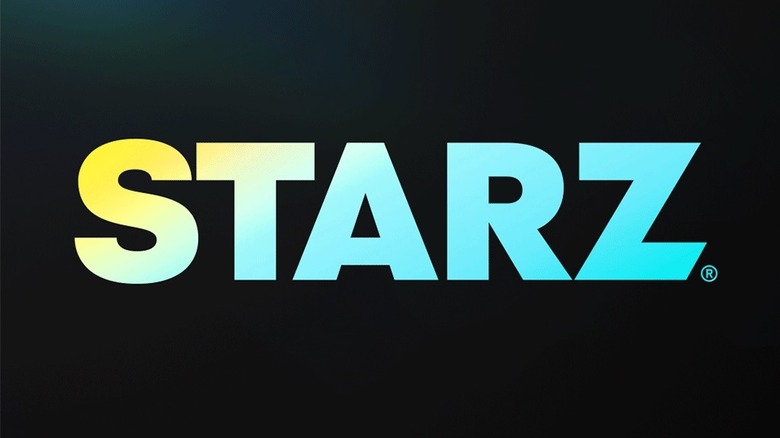More Networks Are Pulling Shows From Streaming – And This Trend Couldn't Be More Dangerous
Hollywood is nothing if not a copycat business. When Marvel Studios first proved the appeal of crossover extravaganzas, the rest of the industry followed suit and pushed their chips all-in on the shared universe craze ... to thoroughly mixed results. (RIP Dark Universe, we hardly knew ya.) When Warner Bros. decided to abruptly flip the traditional theatrical release window on its head under the ownership of telecom giant AT&T, others were quick to follow suit in the midst of the unprecedented pandemic. Now, unfortunately, it looks like Warner Bros. is once again at the forefront of another alarming pattern of behavior.
We most recently reported on Warner Bros. Discovery's incredibly dubious (at best) choice to pull hundreds of episodes of their own flagship "Looney Tunes" shorts from the HBO Max streaming service with absolutely no warning at all. Even under new management, legitimately game-changing decisions continue to be made with little but tax write-offs and other cost-cutting measures in mind. It seems as if other networks and studios have taken notice.
Starz is only the latest to jump on the bandwagon. According to Deadline, three shows have been completely removed from the network's own streaming service: "Dangerous Liaisons," "Becoming Elizabeth," and "Step Up." The news isn't entirely unexpected, as we previously knew that Starz had canceled these shows (despite already committing to a season 2 renewal on at least one occasion), but removing them from the service altogether — notably after HBO Max has done the same for recognizable titles such as "Westworld," "Raised by Wolves," and a whole slew of streaming-exclusive titles – speaks to a far more troubling trend.
Nothing but bad news
Deadline is quick to note that Starz hasn't officially provided any explanation for the sudden removal of these shows from streaming availability, adding salt to the wound of early cancellations. Speculation abounds that this could have something to do with plans to sell or spinoff Starz from parent company Lionsgate (as we covered here), but let's go ahead and state the obvious here anyway. As always, it comes down to money — and the consequences of these choices could have far more wide-reaching implications than shortsighted executives may even realize.
First and foremost, it should be clear that the artists and creators are the ones who will suffer most from this practice of removing titles wholesale from streaming services and (for the lucky ones, at least) selling them off to FAST (free ad-supported streaming television, like FreeVee or Pluto TV). For one thing, early cancellations and the subsequent refusal to make them easily available significantly cuts into the amount of residuals owed to cast and crew — which was already a paltry sum, to begin with.
Needless to say, this also impacts the ability of passionate viewers and wider audiences to actually get into a given property, as well. Both television and film is littered with examples of high-profile projects that only became stone-cold classics after steadily gaining ratings over a long period of time. The trigger-happy cancellations we see on a near-weekly basis these days, however, cuts the legs out from underneath any of those aspirations.
And finally, what does this say about brand and corporate identity when so little loyalty is shown to a network or studio's own product? When entire productions can vanish without a trace at a moment's notice, why should fans allow themselves to become invested in the first place?
Is this is a sign of the times?
Ultimately, onlookers to this slow-motion car crash can likely expect to see more and more of this in the coming months. While it's true that at least some of these titles may wind up on other ad-supported streaming services, it's equally possible that others may simply never see the light of day again ... simply because it fails to make enough business sense to the bean counters at the very top. In an age where physical media no longer rules the roost, digital ownership of movie purchases amounts to little more than ones and zeroes, and interest in preserving and viewing older, more historically significant works of art seems to be at an all-time low, it's enough to make any serious supporter of the arts break out in a cold sweat.
Combine all of this with the still-unfolding impact of the ongoing pandemic and the ever-changing habits of moviegoers and television viewers alike, and it's easy to imagine just how quickly all this could spiral out of control.
It's probably too soon to claim that the sky is falling, but it's worth keeping a close eye on whenever the trades report similar examples of studios and networks cutting off their nose to spite their own face. While this may prove an effective strategy in the short-term, it remains unequivocally murky territory for anyone who considers themselves a fan of pop culture entertainment and the arts at large. With the precedent already set in such public-facing fashion and corporate brands appearing eager to make even more self-destructive business decisions, perhaps nothing short of intense public pressure will be able to put a stop to this runaway freight train.


